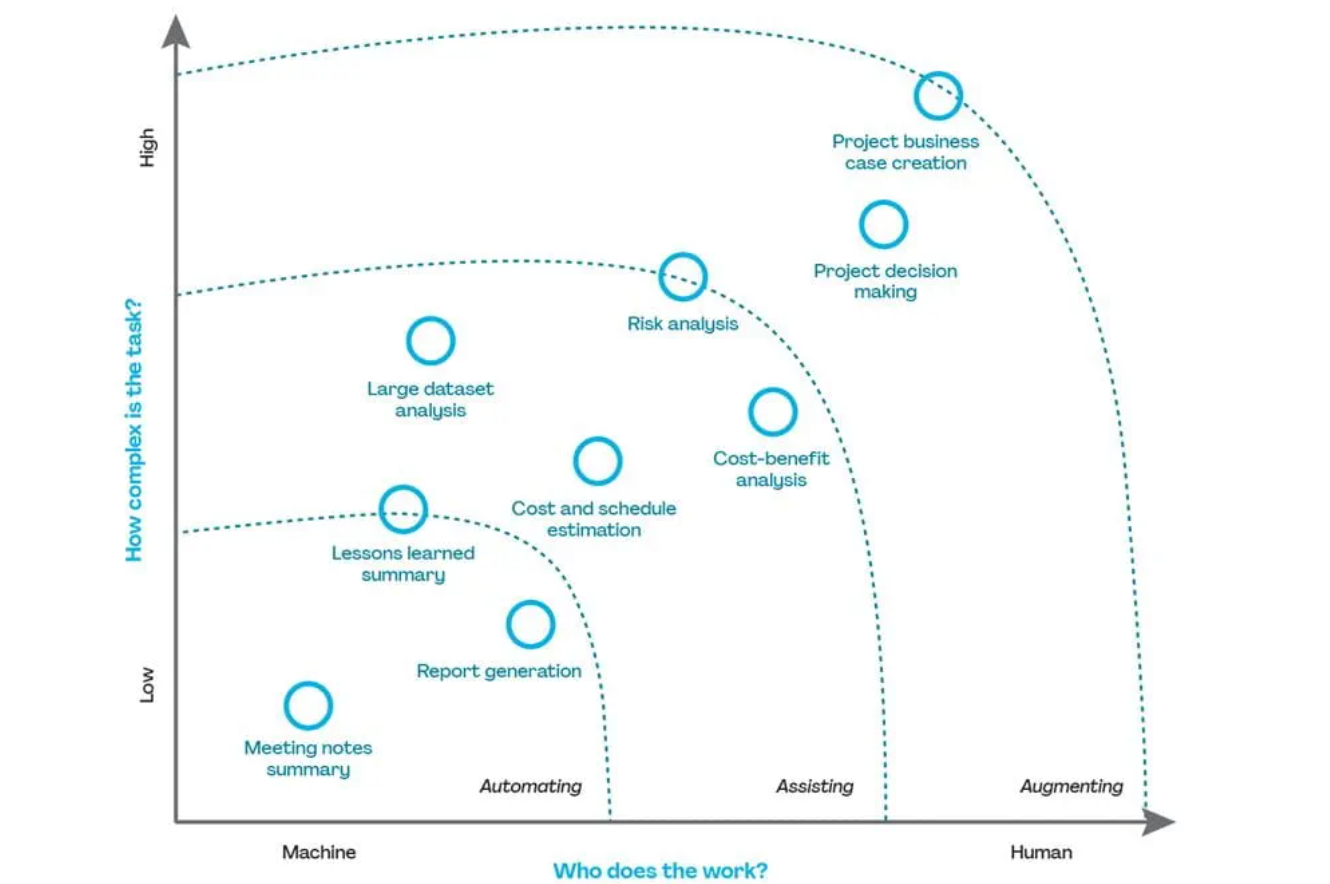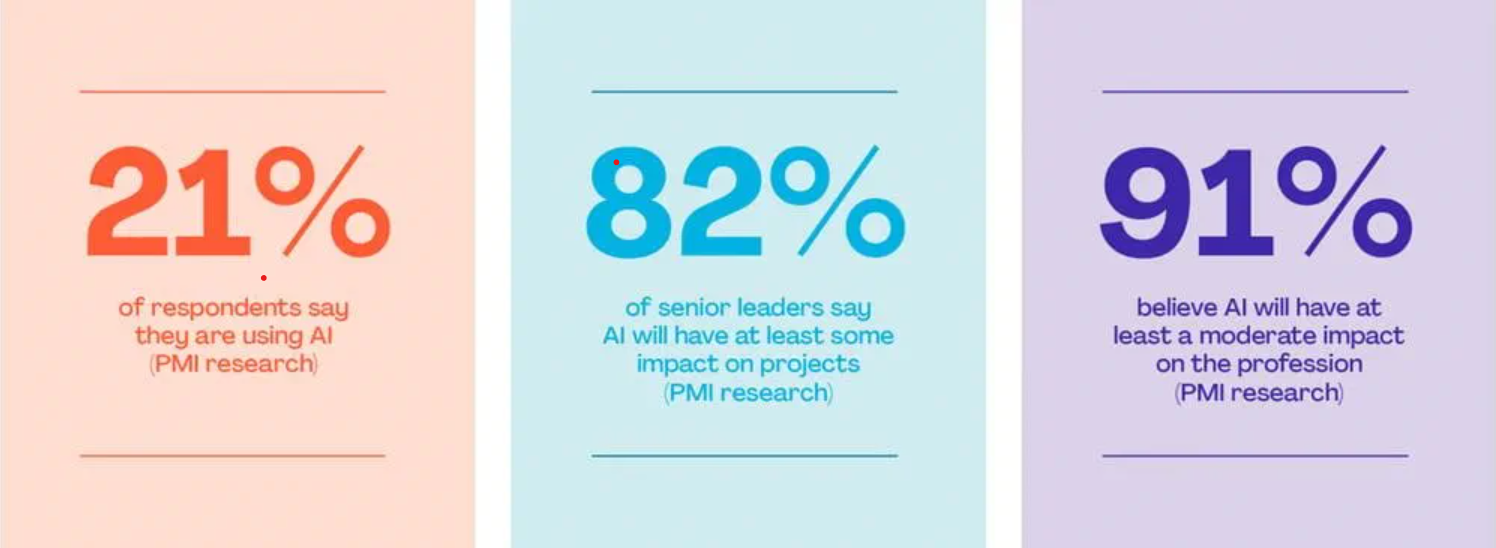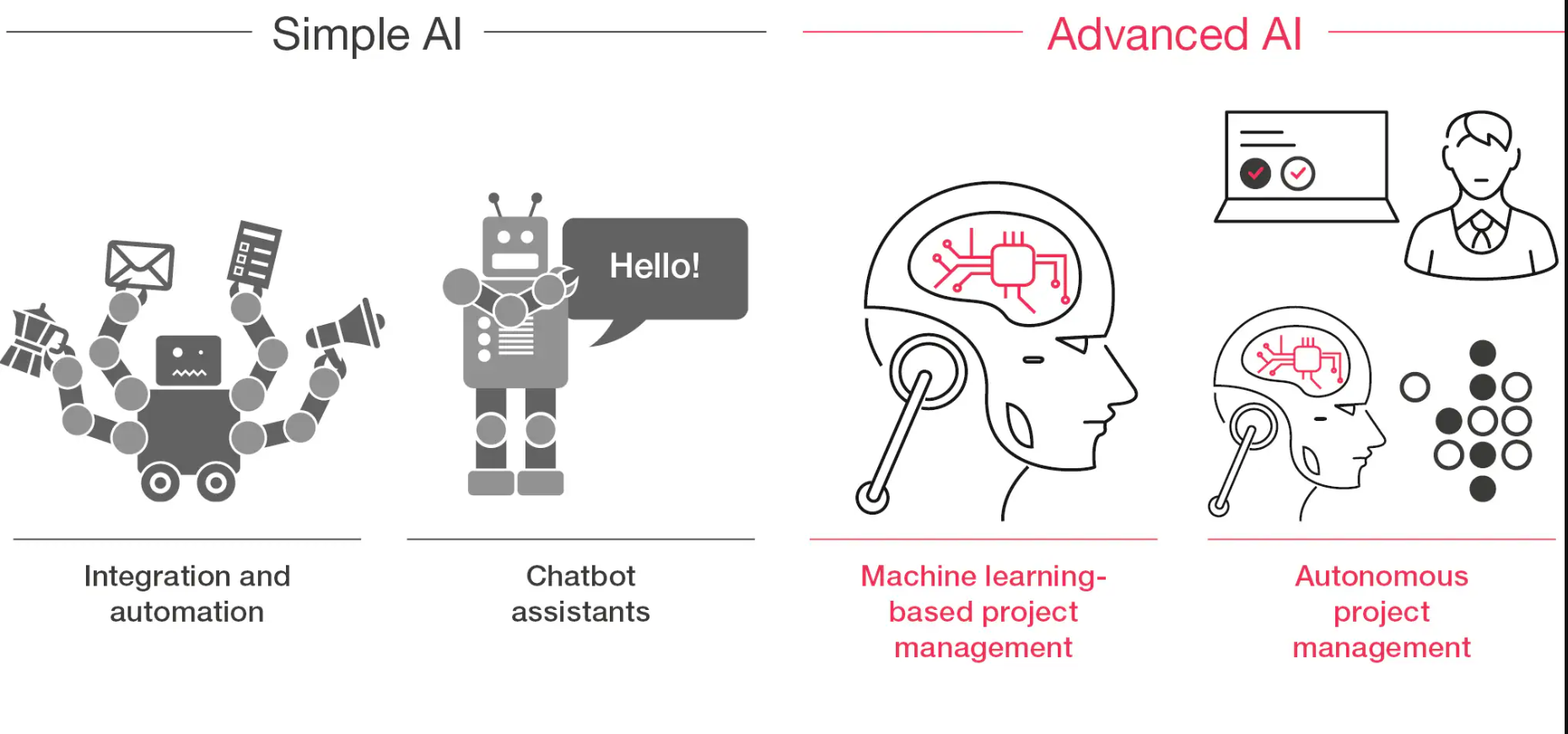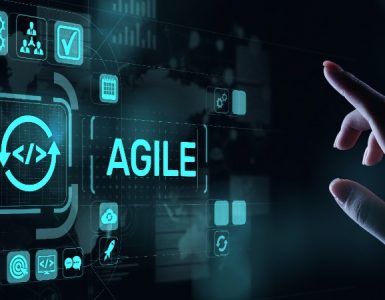Effective project management is critical to the success of any organization, as it helps ensure that resources are utilized most efficiently and productively possible. However, Approximately $48 trillion is invested in projects annually. Yet according to the Standish Group, only 35% of projects are successful. The wasted resources and unrealized benefits of the other 65% are mind-blowing.
As technology is in a constant state of flux, Artificial Intelligence (AI) has emerged as a transformative force, reshaping various industries and business functions. Project management, a discipline central to the successful execution of business initiatives, is no exception. AI and ML have found a wide range of business applications, but their impact is only just starting to be seen in project management.
In this Article, we share our findings to help modern-day project managers understand the impacts of Artificial Intelligence on projects and how they will reshape project management in the future based on suitable AI inputs.
How AI can transform project management – 3 steps to gain full control
Automation with GenAI
GenAI simplifies tasks with low complexity that don’t require much human input for their final output. Such tasks include generating reports, document analysis, summarizing meeting notes, and doing calculations. Project managers can set up universal prompts applicable across various projects, usable by different team members. These tasks generally don’t require the oversight of highly experienced project managers for result validation.
Assistance with GenAI
At this level, project professionals use GenAI tools as a supportive mechanism. The tools aid in initial analysis, provide draft versions for expert review, and help in building the final output for specific tasks. The tool’s outcomes need further refinement, testing, and additional analysis. Examples include drafting a cost-benefit analysis, data analysis for scope change recommendations, creating schedules, and risk analysis. These tasks typically need a moderate level of intervention from experienced professionals for completeness and accuracy.
Augmentation with GenAI
This is the most advanced level, where project professionals enhance existing skills and develop new ones. It aids project managers in performing complex, strategic tasks unique to the organization or subject, like creating detailed business cases for projects or supporting intricate decision-making processes with numerous dependencies and variables.

Here, while project professionals still lead and execute most of the work, they utilize GenAI for insights and task execution through multiple interactions with the tool. The quality of outcomes heavily relies on the individual’s in-depth knowledge and experience in business and project management.
The Advent of AI in Project Management – Only the Pros
The integration of AI in project management signifies a paradigm shift from traditional methods. AI’s ability to process vast amounts of data and learn from it allows for a more informed and dynamic approach to managing projects.
AI tools can automate routine tasks, predict project outcomes, and provide insights that were previously unattainable. This can help teams stay organized and on track, providing valuable insights and predictions, and helping teams identify potential risks and issues before they arise, resulting in fewer delays and cost overruns that can help teams make better decisions.

Enhancing Efficiency and Productivity
One of the primary roles of AI in project management is increasing operational efficiency. AI algorithms can automate mundane and repetitive tasks such as scheduling, resource allocation, and progress tracking. This automation not only saves time but also reduces human error, leading to more accurate and reliable project execution.
Data-Driven Decision Making
AI’s prowess in data analysis is a game-changer for project management. By harnessing AI, project managers can analyze past project data to identify patterns and predict outcomes. This predictive analysis aids in proactive decision-making, risk assessment, and contingency planning, ensuring better preparedness for potential challenges.
Improving Communication and Collaboration
AI-driven tools facilitate enhanced communication and collaboration within project teams. Chatbots and virtual assistants can provide instant access to project information, answer queries, and even suggest actions based on the project’s status. This seamless interaction fosters a more collaborative and informed project environment.
Customization and Personalization
AI enables a more personalized approach to project management. By analyzing individual team member’s performance and preferences, AI can tailor project tasks and schedules to optimize team efficiency and job satisfaction. This level of customization was previously unattainable with traditional project management methodologies.
What could possibly go wrong with AI for project managers? No cons, but considerations.
The impact of artificial intelligence (AI) on project management is profound and far-reaching. Despite these benefits, integrating AI into project management comes with challenges. These include the need for significant investment, data privacy concerns, and the risk of over-reliance on technology. Additionally, there’s a learning curve associated with adopting new AI tools and methodologies.
Integrating Artificial Intelligence (AI) into project management presents several challenges, each of which needs careful consideration and strategic planning:
Data Quality and Availability
AI systems require large volumes of high-quality data to learn and make accurate predictions. In project management, ensuring the availability of such data can be challenging, especially in industries where data is fragmented or sensitive.
Change Management
Implementing AI in project management processes often requires significant changes in workflows and practices. Employees may need training and time to adjust, and there can be resistance to adopting new technologies and execution. Organizations should also be aware of the potential risks of AI and be prepared to address them.
Ethical and Privacy Concerns
AI integration raises concerns about data privacy, especially regarding employee data and client information. Ensuring compliance with data protection laws and maintaining ethical standards is a significant challenge.
Interpreting AI Decisions
Interpreting AI decisions is a crucial aspect of ensuring transparency and accountability in the decision-making process. But AI systems can provide complex analyses that are difficult for humans to interpret. This “black box” issue can make it challenging for project managers to understand and trust the AI’s recommendations.
Integration with Existing Systems
Integrating AI tools with existing project management software and systems can be technically challenging. Compatibility issues and the need for custom solutions can arise.
Scalability and Flexibility
When selecting an AI project management tool, it is important to consider its scalability and flexibility. AI systems must be scalable and flexible to accommodate the dynamic nature of projects. They should be able to adapt to different project sizes, types, and complexities.
Cost and ROI Assessment
The initial investment in AI can be significant. Organizations need to evaluate the cost-effectiveness and potential return on investment (ROI) of integrating AI into their project management processes.
Reliability and Continuity
AI systems should be reliable and continuously available. Any downtime or errors can significantly impact project timelines and outcomes.
Cultural Adaptation
Different organizations and regions may have varying levels of acceptance and readiness for AI. Understanding and adapting to these cultural differences is important for successful integration.
Ongoing Maintenance and Updates
AI systems require regular maintenance and updates to stay effective. This ongoing requirement can pose a challenge regarding resources and keeping the system up-to-date with the latest AI advancements.
Addressing these challenges requires a comprehensive strategy that includes stakeholder engagement, thorough planning, and a commitment to continuous learning and adaptation. Organizations must also focus on building the right infrastructure, processes, and systems to support this strategy. Furthermore, it’s important to create a culture of accountability and open communication to ensure all stakeholders are on the same page.
What is the future outlook for AI in project management?
Gartner has predicted that 80% of project management tasks will be obsolete by 2030 due to artificial intelligence. Artificial intelligence has the potential to transform the project management sector in a significant way. For organizations to fully utilize this potential, they must remain proactive in staying on top of evolving technological trends.

The future of AI in project management looks promising, with advancements in AI technology expected to continuously enhance project planning, execution, monitoring, and overall success rates. AI-driven project management tools are already being used to improve efficiency and accuracy, and it is expected that these advances will be further developed in the coming years. AI technology has the potential to revolutionize the way projects are managed, making project management easier and more efficient.
Here are some examples of successful integration of AI in project management from different industries:
| IBM Watson and Project Debater IBM Watson demonstrated its capability in project management by rapidly analyzing large datasets and generating coherent arguments, which is useful in research-intensive phases of project management. ProSymmetry’s Tempus Resource Siemens AG Construction Industry Tesla |
These case studies highlight how AI is transforming project management across various sectors by improving decision-making, streamlining processes, and optimizing resource allocation.
Wrap up
AI is set to revolutionize project management by enhancing efficiency, decision-making, and risk management. However, the successful integration of AI requires careful planning, investment, and training. As AI technology evolves, its role in project management will become increasingly significant, making it an indispensable tool for project managers worldwide. This evolution will necessitate a continuous adaptation of skills and strategies, ensuring that project management remains at the forefront of technological advancement and operational excellence.
Project managers who stay at the forefront of the progression of emerging technologies and help drive AI adoption within their organizations will best position themselves for career success. The time to act is now, and leverage the tools and resources offered by AI to help you chart your journey forward.
FAQ’s
Q1. Are there specific industries where AI has a more significant impact on project management?
Industries with complex, data-intensive projects, like IT, construction, healthcare, and manufacturing, are seeing a more significant impact from AI in project management.
Q2. Does AI assist in training and development for project teams?
Yes, AI can analyze team members’ performance and recommend personalized training programs, ensuring continuous learning and skill development.
Q3. Can small businesses also benefit from AI in project management?
Yes, small businesses can benefit from AI, especially through cost-effective, cloud-based AI tools that improve project efficiency and decision-making without requiring large-scale investment.
Q.4 How does AI contribute to better team collaboration in projects?
AI-powered communication tools enhance collaboration by facilitating real-time translation, recognizing voice commands, and optimizing communication patterns for diverse, global teams.
Q5. How does AI influence project budgeting and cost management?
AI can optimize project budgeting and cost management by analyzing financial data, predicting costs, and identifying areas for cost reduction, leading to more efficient resource utilization.
Q6. Can AI help in dealing with cross-cultural challenges in global projects?
AI tools that provide real-time translation and cultural insights can help manage cross-cultural challenges in global projects, promoting better understanding and collaboration.
Q7. What kind of training is required for project managers to effectively use AI?
Project managers need training in AI fundamentals, data analysis, and specific AI tools relevant to project management. Understanding AI capabilities and limitations is also crucial.






Add comment